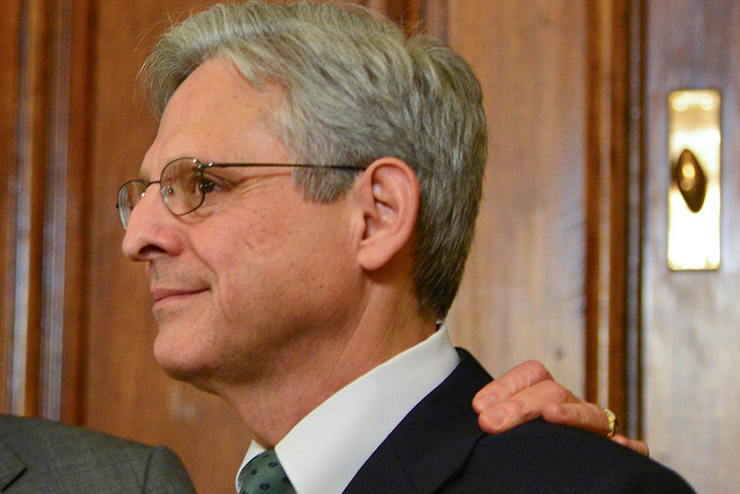President Joe Biden’s son, Hunter, backed out of a plea deal Wednesday after learning that the Justice Department planned to continue pursuing new criminal charges after he pleaded guilty.
Hunter’s attorneys thought that last month they’d secured a sweetheart deal with federal prosecutors in which Hunter would plead guilty to federal tax and firearms charges and avoid both prison time and felonies on his record. If Hunter were a normal citizen not related to the president, he would have otherwise faced charges for additional years of unpaid taxes, unreported income, illegal tax deductions for hookers and payments to family members, unregistered lobbying for foreign interests, and falsely denying his drug problems on an application to purchase a firearm.
Until Wednesday, Hunter and his attorneys believed that the plea deal would put all these problems behind him. But the Justice Department appears to have had another agenda: in order to deflect congressional oversight, it needed to claim that the Hunter Biden matter is still under investigation. On Wednesday in open court, that claim squarely collided with Hunter Biden’s expectation that pleading guilty would settle everything. If Hunter is still under investigation, then he can’t get the full release from future charges that he thought he was getting. But if the investigation is complete, then the Justice Department will have to start submitting to congressional scrutiny.
To navigate out of this mess, the Justice Department will have to inform the court and the public of the charges it could have brought against Hunter Biden. The Justice Department left that out of the plea deal precisely because it would provoke public outrage by demonstrating just how sweet Hunter’s deal is.
This scandal is not just about a president’s son receiving special treatment. The money in question came from foreign interests seeking favors from Joe Biden, then vice president. Hunter has no leverage without delivering his father’s influence. Unfortunately for the Bidens, Hunter documented his father’s involvement in a number of messages.
Under normal circumstances, prosecutors charge everything they’re going to charge and dismiss counts pursuant to a plea agreement. That makes it very easy for everyone to know exactly what the scope of the agreement involves. But in this case, a friendly Justice Department only charged Hunter with the two charges to which he agreed to plead guilty. This left an ambiguity over what Hunter was getting in return. Since ambiguities in plea agreements generally are resolved in favor of the defense, the deal could have effectively operated as a general immunity deal provided the judge didn’t start asking questions. But she did. And when she asked about the scope of the charges being dropped, the prosecution surprised the defense by denying that the agreement would resolve other pending matters still under investigation.
Biden’s Justice Department has been caught manipulating the investigation. Attorney General Merrick Garland has always maintained that the lead investigator, Delaware U.S. Attorney David Weiss, a Trump appointee, would have total authority to bring whatever charges deemed appropriate. But Garland hamstrung the investigation by requiring Weiss to coordinate with Biden’s political appointees.
Unfortunately for the Bidens, not everyone was in on the scheme. An IRS whistleblower made credible and specific claims that he witnessed Weiss admit he was not the final decision maker. The whistleblower claimed to have contemporaneous knowledge that the U.S. attorneys in California and Washington D.C. declined to permit Weiss to file charges in their venues.
The House of Representatives, which came into Republican hands last January, launched a number of investigations into the phony Hunter Biden investigation. With the help of whistleblowers, the House amassed thousands of pages of evidence indicating that the Biden Justice Department willfully ignored the Bidens’ cash-for-influence operations and protected their president with a sham investigation followed by a sweetheart deal for the president’s son.
This led the House of Representatives to intercede in Hunter’s criminal case with an “amicus” brief which included documents it uncovered in its investigations. The principle argument of the brief is that the Justice Department used Biden’s political appointees to prevent Weiss from pursuing the normal investigative and charging steps that the Justice Department would typically use in a case that did not involve the president’s son. The brief challenged Garland’s claim that Weiss had full authority to investigate and file all appropriate charges in all appropriate venues. The amicus brief noted, “But in the June 30 Letter, Weiss stated he lacked ‘charging authority’ outside of the District of Delaware. Instead, Weiss explained that he would have to follow ‘common Departmental practice’ and work with the local U.S. Attorneys with venue to see if they wanted to ‘partner on the case.’”
It turned out that the Justice Department left Biden’s political appointees in charge of approving or disapproving charges in Washington and California. As noted in one of the whistleblower transcripts, “October 7th was the meeting with the leadership and David Weiss. And that’s where those statements were made regarding David saying, I’m not the deciding official on whether charges are filed. He has no authority to charge in California, essentially, is what is told to me about that meeting.”
In other words, when Garland said Weiss had authority, he really meant Weiss could request authority if Garland and other Biden political appointees deemed the additional cases appropriate. And guess what? No charges were filed in those venues.
Now that Hunter’s corrupt plea deal has fallen apart, the political appointees in Washington D.C. and California who engineered it may have to go on record with their behind-the-scenes decisions. And they know that they better wrap this up before January 2025, because the next administration might not be as protective of the Bidens.

Leave a Reply